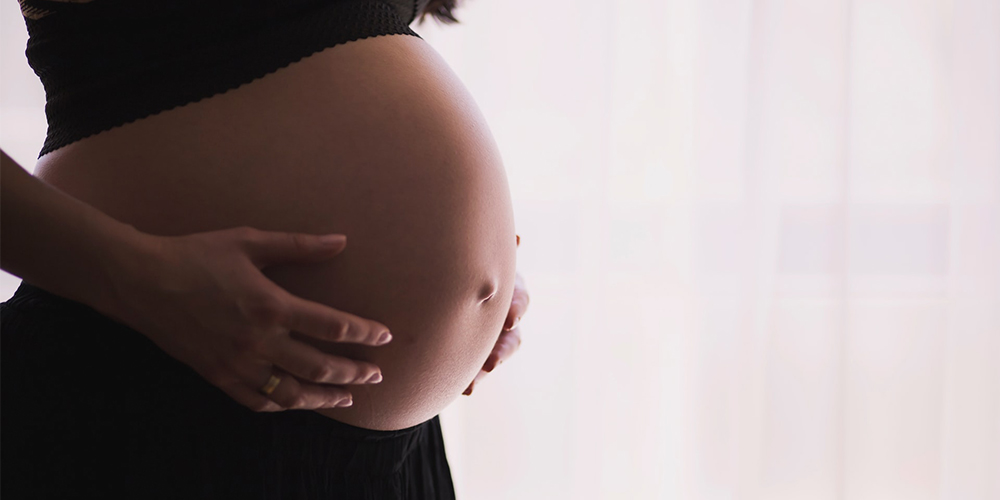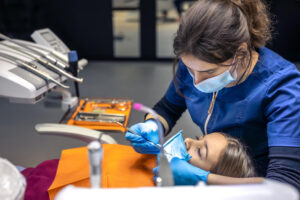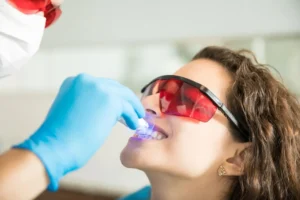If you are pregnant, it seems everything in life needs a little extra research to make sure it’s safe! Rest assured a trip to the dentist while pregnant is not only safe, it’s recommended. Being pregnant is actually when you should spend some extra attention on your dental health. It will not only keep you healthy but give your baby a head start in their oral health too.
To help you navigate your way through pregnancy and keeping your teeth and gums in shape, we’ve compiled a collection of tips so you can welcome your baby to the world with a bright, beautiful and healthy smile.
Pregnancy and gum disease (gingivitis)
The main issue affecting teeth during pregnancy is gingivitis commonly known as gum disease. This can be made worse with the surge of hormones that accompany pregnancy. Progesterone is a key hormone to keeping a healthy lining in your uterus, however it causes blood vessels in the gums to dilate making them more likely to be exposed to bacteria and become infected.
Gum disease can cause redness and swelling of the gums leading to bleeding of the gums when brushing or flossing. It is important to stay on top of gum disease as it can lead to more serious periodontal disease where there is a loss of bone in the jaw holding teeth in place. Left untreated, this can cause teeth to fall out. Gum disease in the mother has also been linked to pre-term births and lower birth weights.
A visit to the dentist, particularly in the second trimester will keep on top of gum disease so it doesn’t progress further.
Morning sickness and your teeth
Sugary pregnancy cravings
Dental X-Rays and Pregnancy
Pregnancy Epulis
Epulis are small benign tumors that can can form between the teeth during pregnancy. These develop due to a build up of bacterial plaque. Much like gum disease and pregnancy, it tends to occur during the second trimester. They usually disappear after the birth of the baby but may need to be removed surgically by your dentist if they do not disappear on their own.
Amalgam filling removal during pregnancy
Calcium intake during pregnancy
Vitamin D helps calcium intake
Vitamin D helps the body utilise calcium. So a little ray of sunshine will do wonders, so too will fatty fish like salmon along with egg yolks and cereals fortified with vitamin D. Of course, always check the foods you eat and their suitability for pregnancy.
Notify your dentist when you visit
Telling your dentist that you are pregnant is important. Knowing this can ensure your treatment can be modified if there is any risk of any procedure or medication used. It may also allow timing of certain treatments to be brought forward or pushed back. Plus, as mentioned, the taking of x-rays can be managed and some extra focus can be placed on gum-related issues common with pregnancy.
Keep up your dental hygiene while pregnant
With everything happening with your body and baby during pregnancy, your dental hygiene might be put on the back burner. More than ever, brushing and flossing twice a day during pregnancy needs to be maintained due to the heightened risk of gum disease and tooth decay. Some mums-to-be find brushing at the back to induce a gag reflex. It’s important not to miss these teeth. Some people find using a children’s toothbrush with a small head helps. Alternatively, just take it slow or put on some relaxing music to take your mind off the task at hand.
If you’re planning on getting pregnant and your dental hygiene needs improving, get your teeth and gums into good condition now. Followed up by a solid routine and the help of your dentist, your teeth and your baby will thank you for it!
If you’re already pregnant, you do not need another thing to worry about and your dental hygiene should not be interrupted during pregnancy.
Dr Finkelstein Dentist can take special precautions to make sure your trip to the dentist while pregnant is safe for you and your baby. Apart from taking any necessary precautions, Dr Finkelstein can put you at ease and reduce any normal dental anxiety you may feel by visiting a dentist with a little one on the way.








